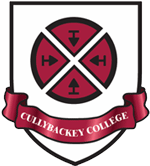Geography is a subject that, by its very nature, inspires students to become active and independent learners. We aim to promote pupils’ curiosity and learning through first-hand experience and involvement, wherever possible. Geography encourages young people to ask questions and to find answers, to form opinions and develop new skills. It enables them to become aware of why the world around them is as it is, and to understand and value their part in it.
Subject:
Geography
Levels Taught:
KS3
GCSE/KS4
Post 16
Staff:
Mrs K Armstrong – (HOD)
Mrs A Parker
Mr A Magee
Mr T Manson
Mr R Swann
KS3:
(Subject/Topic Content)
Year 8
What is Geography?
- Find out why Geography is such an important subject and how we can be better geographers.
Map Skills
- Students learn how to accurately read and interpret Ordnance Survey maps and develop the skills to understand the information about a landscape from a map.
Earthquakes and Volcanoes
- Learn about Slemish Mountain, the Noah Pod and the tallest mountain on the planet.
Settlements
- We will carry out an investigation of the reasons why Cullybackey village is located on the site that it is.
Year 9
Map Skills
- Students will add new skills to those developed in Year 8 with the aim of further developing their confidence.
Weather and Climate
- Why does it always rain in Northern Ireland? What is lightening? This topic seeks to answer questions like that, and many others.
Ecosystems
- We look at why different plants and animals are only found in certain places e.g. why do polar bears only live at the North Pole? We study insect eating plants in the Rainforest and learn how to make snake pie in the Sahara desert.
Year 10
Rivers and Flooding
- As the weather becomes more unpredictable, we look at the potential impacts increased rainfall could have on our local landscape.
Map Skills
- This year we learn how to measure distances on OS maps as well as practicing all of the other skills already learned in previous years.
Big Miracle
- Pupils carry out a research project investigating the role of the media when it comes to influencing public opinion about environmental issues.
Population
- Earth’s population is currently more than 7 billion, we will try to understand why populations rise and fall, and also what governments are doing to affect the number of people in their country by learning about China’s One Child Policy.
Climate Change
- Pupils are taught the link between climate change and the greenhouse effect, and that without this natural effect life on earth wouldn’t be possible. Pupils learn about the causes (mainly human, as physical will be touched upon at GCSE) and impacts of climate change, and pupils identify solutions to the problem of climate change.
GCSE/KS4:
(Subject/Topic Content)
Year 11
We follow the CCEA Geography specification.
Unit 1 – Physical Geography:
- River Environments
- Coastal Environments
- Our Changing Weather and Climate
- The Restless Earth (Earthquakes and Volcanoes)
Students sit a modular exam on this unit at the end of Year 11.
Year 12
Unit 2- Human Geography:
- Population and Migration
- Changing urban Environments
- Contrasts in World Development
- Managing Our Environment
In year 12 pupils complete the data collection for their field work studying the changes occurring along the Curly Burn river. Pupils will use this data to prepare for Unit 3 exam, which assesses their ability to analyse the data they have collected from the Curly Burn River.
Students sit the exams on these 2 units at the end of Year 12
Post 16:
(Subject/Topic Content)
Year 13
We follow the CCEA Geography specification.
For AS Unit 1: Physical Geography, we study the topics of:
- Fluvial Environments (Rivers)
- Ecosystems
- Weather and Climate
In preparation for the Unit 2: Human Geography exam students also study:
- Population
- Settlement change
- Development
AS students participate in the collection of data regarding changes through a sand dune system. This involves a residential trip to the North Coast and the opportunity to use a range of techniques that could be examined in the AS Unit 3 exam (Fieldwork Skills and Techniques in Geography).
Year 14
At A2 level we complete our in depth studies on:
- Ethnic Diversity
- Tourism
Followed by:
- Plate Tectonics – Theory and Outcomes
- Tropical Ecosystems – Nature and Sustainability
A2 students also prepare for a Decision-making exam. Within this they are provided with a series of resources, such as maps, photos, tables of data and written information, on a particular development issue. They must use all of the information in front of them to determine the best course of action that the planners should undertake.

